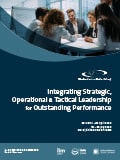An intensive professional development training course on
Reservoir Engineering
Core System-Dynamic
Best Practices of Petroleum Reservoir Engineering
Why Choose this Training Course?
Best practices of reservoir engineering represents very effective tools for evaluation of oil and gas reserves, primary, secondary, and tertiary recovery mechanisms. This course is designed to provide best practices of reservoir fluid flow in porous medium, characterization of five different reservoir fluids/sampling, reservoir drive mechanisms, material balance equation (MBE), oil well testing, water flooding, and enhanced oil recovery methods (chemical, thermal, and miscible). This course provides best practices of reservoir engineering to maximize oil recovery through a lifecycle of an oil field with several examples and exercises plus industry video about all topics involved.
This AZTech training course will feature:
- Routine and Special Core Analysis (RCAL & SCAL) for reservoir rocks
- Commercial Equations of State (EOS) currently used in the oil industry
- Material Balance Equation (MBE) technique and its different applications
- Single and multi-wells oil well testing techniques and their applications
- Water flooding and Enhanced Oil recovery (EOR) applications
What are the Goals?
By the end of this AZTech training course, participants will be able to:
- Apply volumetric and material balance equations to calculate reserves
- Understand oil and gas flow equations under different flow regimes
- Understand main methods of well testing of Drawdown and Buildup tests
- Calculate time and saturation of water breakthrough in water flooding
- Best practices of main groups of Enhanced Oil Recovery (EOR) techniques
Who is this Training Course for?
This training course is suitable to a wide range of professionals but will greatly benefit:
- Petroleum Engineers & Production Engineers
- Processing engineers & other discipline engineers
- Geologists & Petro physicists
- Engineers who are new to the profession
- Other individuals who need to know about current & advanced techniques in EOR
How will this Training Course be Presented?
This training course will utilise a variety of proven adult learning techniques to ensure maximum understanding, comprehension and retention of the information presented. The course is designed as a blended environment of presentation, class exercises, field application/ analysis and several industry videos showing all processes.
The Course Content
Day One: Geology and Reservoir Rock Properties
- Definitions of petroleum engineering and reservoir engineering
- Responsibilities and required tasks of reservoir engineers
- Different types of rocks, rock cyclic, and depositional environments
- Types of oil traps: structural, stratigraphic, and combination
- Global distribution of oil and gas reserves and top producing countries
- Routine and Special Core Analysis (RCAL & SCAL) for rock properties
Day Two: Phase Diagram and Reservoir Drive Mechanisms
- Reservoir fluid properties and their variation with pressure
- Phase diagram concept and its important applications
- Five different reservoir fluids, Lab and field identification
- Applications of ideal and real gas Equation of State (EOS)
- Three phases of oil recovery: primary, secondary, and enhanced
- Six different primary reservoir drive mechanisms
Day Three: Material Balance Equation (MBE) Applications
- Definition, classification, and calculation of reserve
- Application of Material Balance Equation (MBE) Technique
- Volumetric reservoirs and Havlena and Odeh Technique
- Types and purposes of well tests
- Single well and multi-well testing methods
- Geological information from well testing
Day Four: Gas Resources and Water Flooding
- Concepts and global distribution of gas reserve
- Conventional and unconventional natural gas sources
- Gas hydrates as a n important future energy source
- Secondary recovery and problems of water flooding
- Frontal displacement (fractional flow) theory and calculation example
- Design procedure and an example of how to design a reservoir simulation study
Day Five: Enhanced Oil Recovery (EOR) Techniques
- Enhanced Oil Recovery (EOR ) Methods and need to apply
- Chemical EOR: polymer, alkaline/surfactant/polymer (ASP)
- Solvent EOR: Carbon Dioxide, and hydrocarbon gas injections
- Thermal EOR process and heavy oil reserves
- Steam Assisted Gravity Drainage (SAGD) EOR Process
- Microbial, Enzyme, and Low Salinity Water (LSW) EOR processes
The Certificate
- AZTech Certificate of Completion for delegates who attend and complete the course.
DO YOU WANT TOLEARN MORE ABOUT THIS COURSE?
© 2024. Material published by AZTech shown here is copyrighted. All rights reserved. Any unauthorized copying, distribution, use, dissemination, downloading, storing (in any medium), transmission, reproduction or reliance in whole or any part of this course outline is prohibited and will constitute an infringement of copyright.







